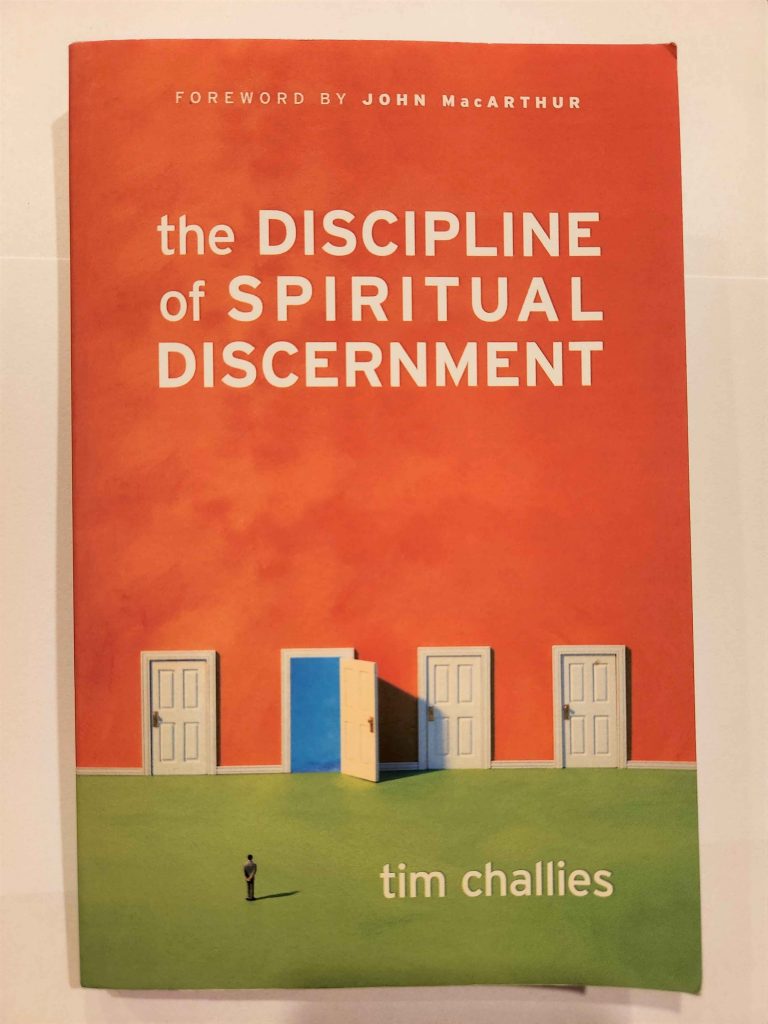A review of Tim Challies’ book The Discipline of Spiritual Discernment

I was introduced to this book in a class at church and was so impressed, I reread it and took detailed notes. This review is a short summary that will, hopefully, encourage you to evaluate how you think about ideas and attitudes, especially spiritual ones.
What is discernment? It’s interesting that Tim Challies did not open his book with a definition of discernment but by showing how critical it is. Using King Solomon as an example, he demonstrated how “God values discernment and honors those who seek after it.” (p. 21) Those who lack discernment display evidence of spiritual immaturity, backsliding, or are spiritually dead. This is a harsh proclamation but it matches the importance of the topic. Why? If we are not spiritually discerning, how can we detect or prevent Satan’s efforts to water down and corrupt the Gospel?
Challies challenges readers to realize that just as our physical immune system must be on guard against the germs that constantly attack our bodies, we must be spiritually on guard, as well. That requires discernment because, “Satan seeks to lead us astray, to deceive us, by offering a counterfeit version of the truth.” (p.41) If we are not alert, the dangerous cultural influences of a secular worldview, low regard for the Bible, and distain for theology can contaminate how Christians think.
With this background of how vital spiritual discernment is, Challies goes on to define it. I won’t spoil the book by giving you his definition because it is well worth the investment of time and money to read it. However, you should know that discernment deals with being able to recognize truth from error and right from wrong. We may associate discernment with wisdom for decision making but it goes beyond that.
Biblically, discernment is associated with judging. Challies did a good job pointing out that the command to “test all things” (1 Thessalonians 5:1) is not a contradiction of Jesus’ command about judging (Matthew 7:1). By looking at the whole of the Bible, particularly other statements Jesus made, it is clear that He was not saying what people flippantly throw around, that we should not judge, in an effort to clear their guilty consciences.
“We are to be discerning about all things and are to ensure we only believe what has been approved. We are to test all things, discerning between what pleases the Lord and what does not.” (p. 82) For example, we are told to test prophecy (1 Thessalonians 5:20-21), spirits (1 John 4:11), leaders (1 Timothy 3:10), other believers (2 Corinthians 8:22), even ourselves (2 Corinthians 13:5). If we do, we can be like the Bereans who were commended for exercising discernment.
Now these Jews were more noble than those in Thessalonica; they received the word with all eagerness, examining the Scriptures daily to see if these things were so. (Acts 17:11)
In a postmodern society where people think truth is relative, discernment is needed not only to know real truth from error but to guard the actual truth. How do we know what is true? “God is the source of truth for He is truth. We know of truth and we know of God through the Bible.” (p. 95) This is why it is imperative for Christians to read, study, and know the Bible. If you know what God said, you can detect lies and distortions. Just as a bank teller studies real money to be able to spot counterfeit bills, we must study the Bible to discern truth from error.
You may be thinking, if study is necessary then getting discernment will not be quick or easy. That’s right. Challies told readers that discernment is a skill which takes time and exercise to develop. He ended the book with 17 steps to practice discernment.
Recommendation
The book is well written, easy to understand, and practical. Readers will enjoy the stories that Challies uses to illustrate concepts. I highly recommend The Discipline of Spiritual Discernment for every Christian, particularly pastors and professors at Christian colleges and seminaries. Almost without a doubt the church in America has lost the respect of society because we have not been discerning in guarding the truth. By accepting worldly values and standards the church looks like the rest of society, so why should anyone pay attention? This is great tragedy that can only be remedied by getting back to taking God’s Word seriously. Thanks, Tim for writing this book!
You can learn more about Tim Challies and his books at: https://www.challies.com/
